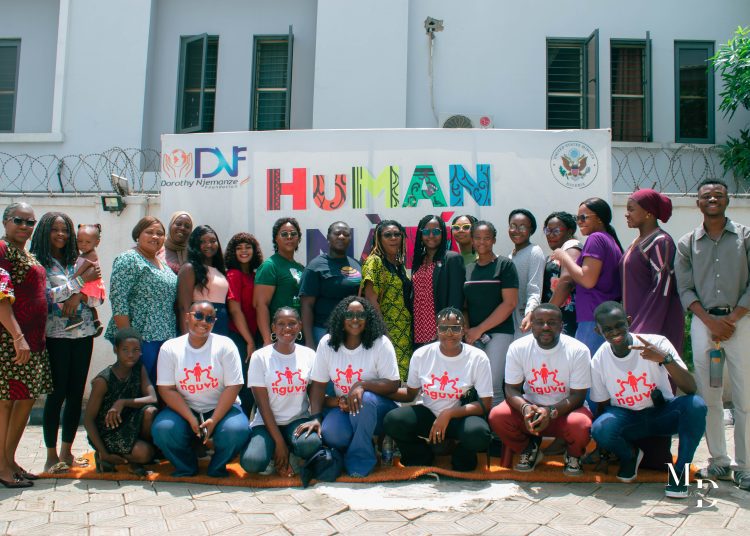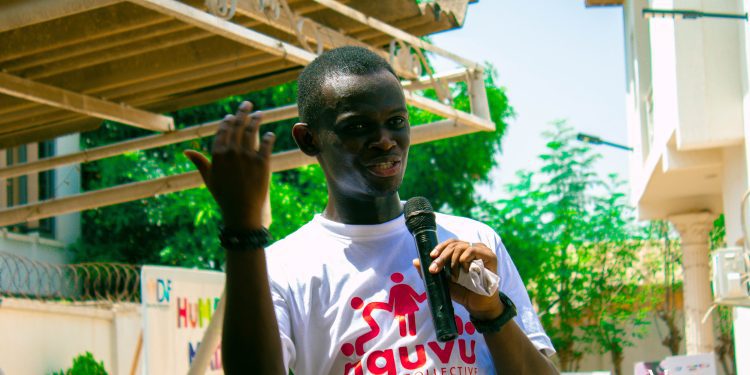As the world marks the 2024 Sickle Cell Day, Blessing Oladunjoye speaks with Ebenezar Wikina, a Senior Partnerships Specialist at Nguvu Collective, an organization that leads campaigns on reducing the burden of Sickle Cell in Nigeria and across Africa.
Considering that Nigeria accounts for a staggering 33% of the 300,000 children diagnosed annually with sickle cell anemia, with a high mortality rate among affected children under five, Nguvu Collective is advocating for the re-introduction of the National pre-marital genotype testing law to reduce the prevalence of sickle cell anaemia in Nigeria.
Question: Can you provide an overview of what Nguvu Collective does, specifically focusing on its mission in combating sickle cell anaemia in Nigeria and across Africa?
Response: Nguvu Collective is a global women’s leadership organization based in Kenya, Nigeria, and South Africa. We support women Change Leaders from marginalised communities across these countries to become voices for change on the development issues they care about. The campaigns we are supporting on sickle are just one of the many campaigns that our Change Leaders in Nigeria are leading related to women’s health, women’s inheritance rights, women’s education, and gender-based violence, to mention a few.
Question: How prevalent is sickle cell anaemia in Nigeria and does it receive adequate attention from state actors?
Response: Nigeria accounts for about 33% of the 300,000 children diagnosed every year with the disease. Every year, an estimated 100,000 children in Nigeria are diagnosed with the condition in Nigeria, according to the Health Ministry, and up to 80% die before they turn five.
In the recent past, attention from state actors has improved as seen in the passage of state-level pre-marital genotype test laws in Abia, Anambra, Kano, and Kaduna States. As well as the recent commissioning of a Sickle Cell Center in Lagos State to help provide relief. However, much more still has to be done.
Question: What are the barriers (attitudinal or institutional) that limit people with sickle cell anaemia in Nigeria from living their full potential?
Response: According to the American Society of Hematology, the lifetime treatment cost for sickle cell carriers is around $1.6 million. The disease is a very expensive one and the mental and emotional toll it leaves on its carrier is more than anyone can explain. The cost of treatment of the disease, which is currently available only through a bone marrow transplant surgery, is way above the means of the average Nigerian.
Question: What are the primary interventions Nguvu Collective has implemented to address sickle cell anaemia in Nigeria, specifically concerning policy change and improvement in healthcare delivery? (policy reforms, budget advocacies, etc.)
Response: Working with our Change Leaders, Onor-Obassi Tawo and Mariya Bagudo, two women who have lost their brothers to sickle cell in Nigeria, we are campaigning for a national law that mandates Pre-Marital Genotype Testing as this is the most effective way to prevent the disease. A bill for this law has been raised a couple of times in the 8th and 9th Assemblies at the National Assembly but never seemed to scale through.
We are also positioning our Change Leaders to be opinion leaders on this issue through media and community advocacy, having them share their personal stories as part of the messages of their campaigns.
Question: What are the efforts being put in place by Nguvu Collective to reduce the prevalence of sickle cell anaemia in Nigeria?
Response: We believe that the national campaign seeking mandatory Pre-Marital Genotype Testing will go a long way in reducing Nigeria’s sickle cell burden when fully implemented by key stakeholders across the country including religious organizations and the marriage registry.
Our Change Leader, Onor-Obassi Tawo through her organization, Okares Foundation continues to engage with communities in Southern Nigeria to ensure that there is enough awareness on the issue. Mariya Bagudo has leveraged the power of writing, storytelling, and literature to continue spreading the message to the AREWA community in the North.
Question: Does Nguvu Collective embark on education and awareness campaigns to counter negative narratives about people with sickle cell? (this is to counter discrimination being experienced by people with sickle cell anaemia).
Response: As part of our campaign, we ensure that Sickle Cell Warriors, just like our Change Leaders, get the opportunity to share their stories themselves on several platforms. This helps to demystify any prejudices about the disease and its carriers.
Question: What partnerships has Nguvu Collective established with healthcare providers, and how have these collaborations enhanced the impact on sickle cell treatment and care?
Response: Partnerships are central to the work we do at Nguvu Collective as a global women’s leadership organization. To commemorate World Sickle Cell Day this year, Nguvu Collective is collaborating with Samira Sanusi Sickle Cell Foundation to host a conversation that features Sickle Cell Warriors as they tell their story and advance advocacy for the national pre-marital genotype test law.
Moving forward, we will be extending our hand of partnership to the clergy, medical professionals, policymakers, to mention a few.

Question: As the world marks ‘World Sickle Cell Day’ on June 19, what would be your charge to stakeholders (governments, organizations and individuals) in reducing the burden of sickle cell anaemia in Nigeria and Africa as a whole?
Response: Nigeria is the sickle cell capital of Sub-Saharan Africa, and this has to change. We give kudos to states like Kano, Kaduna, Abia, and Anambra who have passed state laws mandating genotype testing before marriage, and we encourage other states to do the same. Nguvu Collective is supporting two women, Onor-Obassi Tawo and Mariya Bagudo, with lived experiences of sickle cell to amplify their voices and campaigns seeking a national law on genotype testing before marriage.
Therefore, we call on Senate President, His Excellency Senator Godwill Akpabio and honourable colleagues to reintroduce conversation on the national pre-marital genotype law as a policy measure to reduce Nigeria’s sickle cell burden ensuring that Nigerians can all live a long, healthy, and fulfilling life. Now is the time to act!

